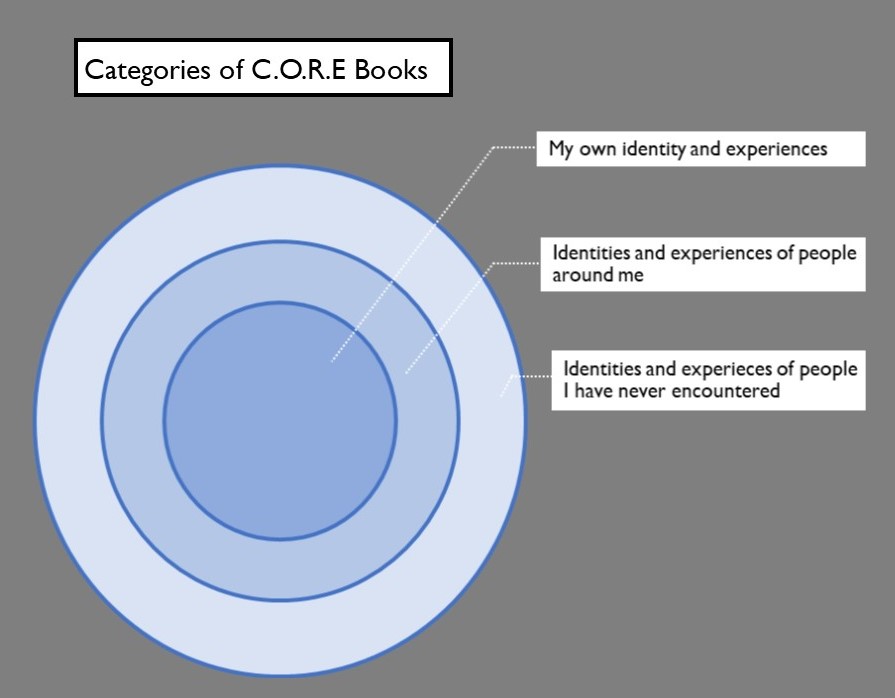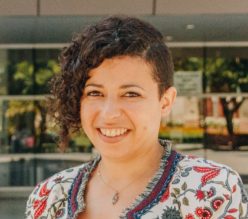Many educators want to bring discussions of equity and social justice into their curricula. What holds us back from addressing topics like race, gender, religion, sexuality and politics is often concern about making mistakes, not having enough of a baseline understanding to begin, and not having enough depth of understanding to guide students through the conversation and address questions as they arise.
I conceived of C.O.R.E. (Community of Reading Educators) as a way to provide a framework for developing both foundational and in-depth knowledge of the complex identities and experiences that make our world what it is. A community of readers is differentiated from a book club in that each group member reads a different book of their own choosing, within the parameters of the three C.O.R.E. categories: my own identity and experiences, identities and experiences of people around me, identities and experiences of people I have never encountered.

In monthly meetings, members discuss what they have learned through their readings. These discussions are key to the synthesis of new information. By bringing new ideas into discussion with one another, members begin to incorporate them into their broader understanding of the world. Members sometimes exchange books so that over time several may read the same book, discussing it from the perspective of each individual. Members reflect on how their reading can inform their role at the school.
C.O.R.E. was active at Children’s Day School in San Francisco from 2013-2016. Members read both fiction and non-fiction about Japanese-Canadian internment, the history of policing and prisons in the U.S., sustainable farming practices, autism, poverty, the lives of 20th-century Italian women, the lives of indigenous women in 21st-century Guatemala, and the experience of coming out as transgender, among other topics. Teachers reported finding themselves weaving new understanding into their conversations with students and thinking differently about their curricula. Administrators reported a new sense of curiosity about and empathy for the teachers, parents, and children they interacted with daily.
